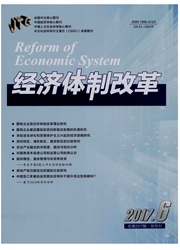

 中文摘要:
中文摘要:
房地产税改革与整个税制改革及其他领域多项改革关系密切,推进房地产税改革应重视这种关联性,在全局视角下进行通盘谋划。本文通过构建一个改革前后向关联分析框架,探讨了我国房地产税改革中的功能定位、税制设计、实施方式问题,得出3个重要结论:首先,房产税功能定位与税制设计应兼顾满足完善税收制度、调节收入分配、促进房地产市场健康发展的需要,这是提高房地产税科学性的基础;其次,征收房地产税应坚持走立法程序并妥善处理好立法中的矛盾,这是保证房地产税合法性与合意性的要求;再次,房地产税改革还应考虑我国课税对象与税源实际状况及税收征管方面的约束条件,这是增强房地产税可行性的关键。
 英文摘要:
英文摘要:
There is a close relationship between real estate tax reform and overall taxation system reform as well as reform in other fields. Such relationship should be taken full consideration so that the real estate tax reform promoted in the perspective of reform and development as a whole. The paper constructs a forward and backward reform relationship framework to analyze some important issues of real estate tax reform including function orientation, tax design and implementation method. Three main conclusions are reached: Firstly, the function orientation and tax design of real estate tax should meet the needs of improving taxation system, regulating income distribution and promoting healthy development of real estate market in a balanced way, which is the basis to establish a reasonable real estate tax system. Secondly, real estate tax reform should adhere to the legislative procedure and properly handle contradictions in the process, which is necessary to ensure the legitimacy and acceptability of reform. Thirdly, current situations of tax object and tax source as well as tax collection restrictions should be considered so as to make the real estate tax reform programme more feasible.
 同期刊论文项目
同期刊论文项目
 同项目期刊论文
同项目期刊论文
 期刊信息
期刊信息
